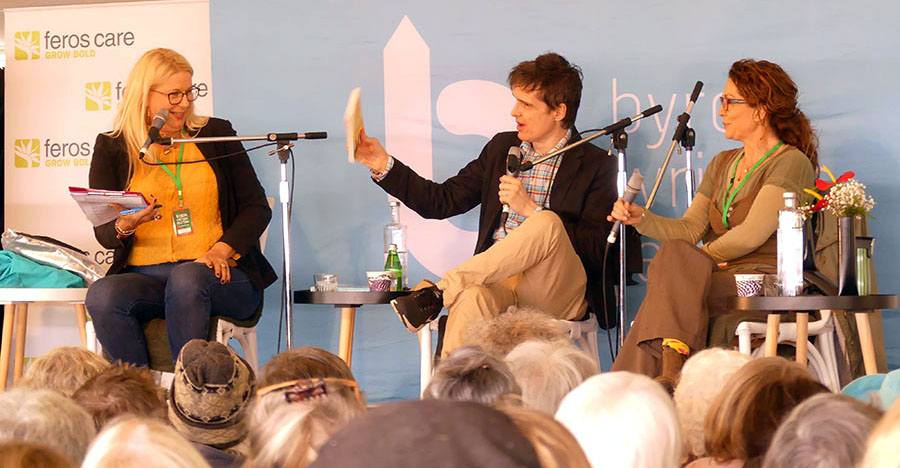Comedy: an addictive life

Comedy is not for the faint-hearted. While the rewards are great, you do run the risk of offending people at every turn.
Something Kitty Flanagan clearly understands: why else would she title her book Burning Bridges?
She joined fellow Australian comedians, Andrew Hansen of The Chaser fame and local bridge burner Mandy Nolan, to chew over the addictive power of choosing comedy as a career.
Flanagan built a strong following from her appearances on television programs The Weekly and The Project but said stand-up comedy is something you do ‘not only because you enjoy it, but because if you don’t do it, you get sh*t at it.
‘It’s like a muscle you need to exercise, she said.
For Hansen, comedy is a precarious career: ‘You keep getting fired. Every show or gig ends.’
There is no job security, he jokes, it is ‘a terrible life’.
Hansen has now written a children’s book, Bab Sharkey and the Animal Mummies: The Weird Beard with his wife Jessica Roberts.
Comedy’s audience is a fickle beast, and every comedian more than once will have to face a crowd that just find nothing funny.
All three have experienced gigs with such audiences, and all suffer from the belief comedians share: no matter how bad its going, they can turn the audience around.
Flanagan remembered a gig she did in prison where “almost all of them were smacked out on methadone, and they were wondering why I was such a sh*t stripper, and why I talked so much.’
A career in comedy is not one that many parents are happy to support for their offspring.
Flanagan’s mother did not come around until the ladies of her golf club saw her daughter perform and enjoyed her performances.
But Flanagan hates it when her mother comes to a show. After the applause dies down, she said she can hear her mother’s judgemental ‘tch’ echo through the room. Her mum hates it when she swears.
But Hansen said swearing is often used as a form of punctuation by comedians.
‘If used in the right place swearing is like punctuation. F**k is like a semicolon; you got to know where to put it.’
Nolan, a notorious swearer in her comedy shows, pointed out recent studies have shown those who swear have a higher IQ, larger vocabularies, and tend to be more creative. She acknowledged that it was one of those reports which people like to cherry pick from to prove their case.
For comedians, it’s all about the laugh.
‘So long as it gets a laugh,’ Flanagan said, swearing works. ‘If people don’t laugh, I won’t do it again.’
That was a more powerful way to indicate to her that the joke did not work, better than attacking her on social media.
Flanagan discussed her segment on The Weekly about vaccination as an example of a joke which generated a lot of anger towards her. Nolan asked if she were aware of controversy it would cause.
“I’m pretty stupid,” Flanagan said. ‘I didn’t know it was going to be that bad.’
The threats were very direct.
‘At no point did I suggest we should kill people who don’t vaccinate [but] their first reaction was to have me wiped off the face of the Earth, and by allowing measles back, they’re halfway there.’
The ABC loved it though as it showed audience ‘engagement’.
It is for reasons like this that Flanagan stays off social media. Her sister looks after her Facebook account – Flanagan’s only social media presence – and removes any negative posts.
‘You wouldn’t come into my living room and say ‘you’re f**king shit’. It’s not a free for all.’
Jeff Clark is a Southern Cross University Digital Media and Communications student.
